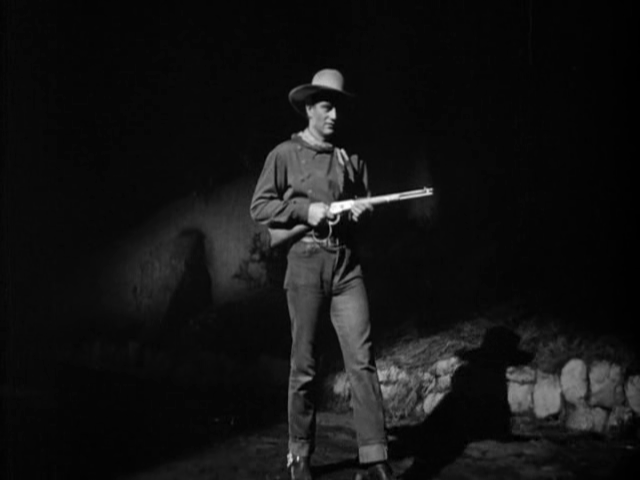
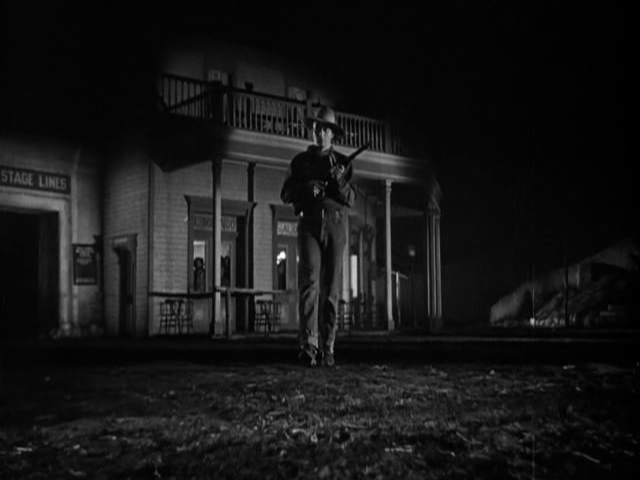
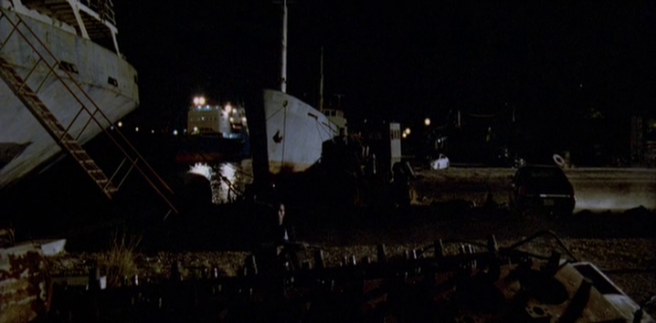
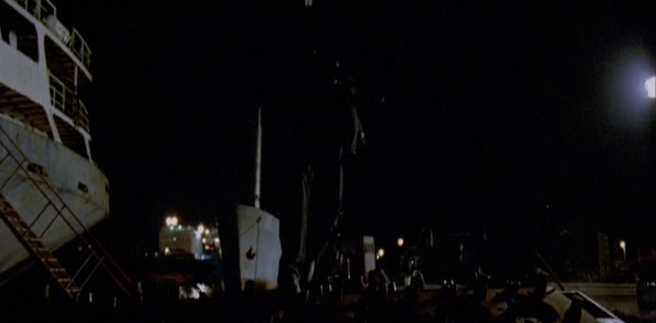
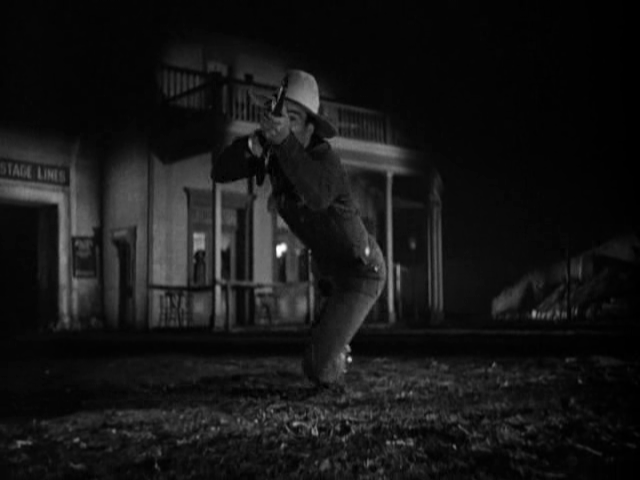
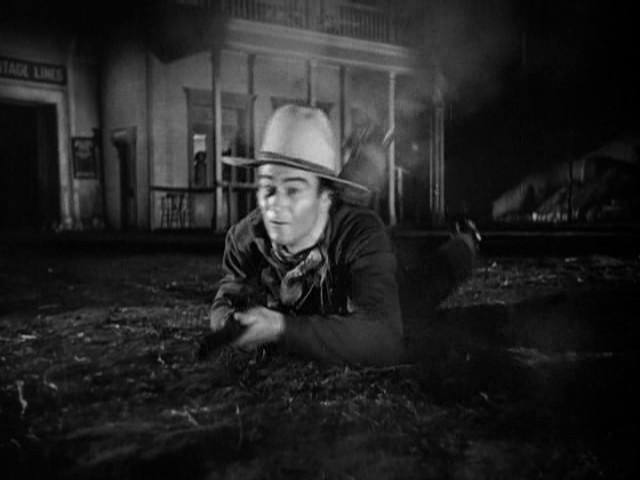
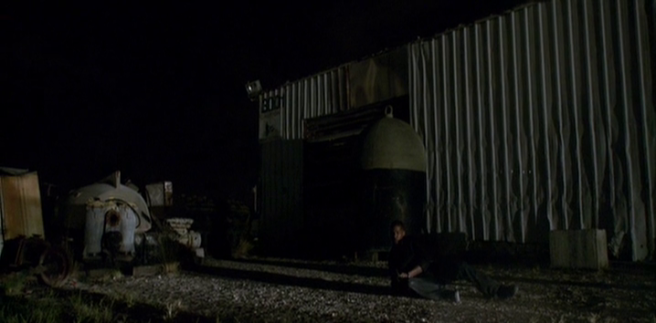
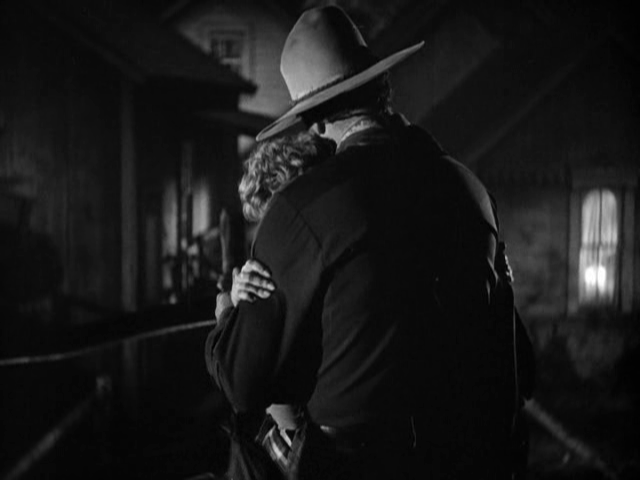

Stagecoach (1939) by John Ford
Miami Vice (2006) by Michael Mann









Stagecoach (1939) by John Ford
Miami Vice (2006) by Michael Mann
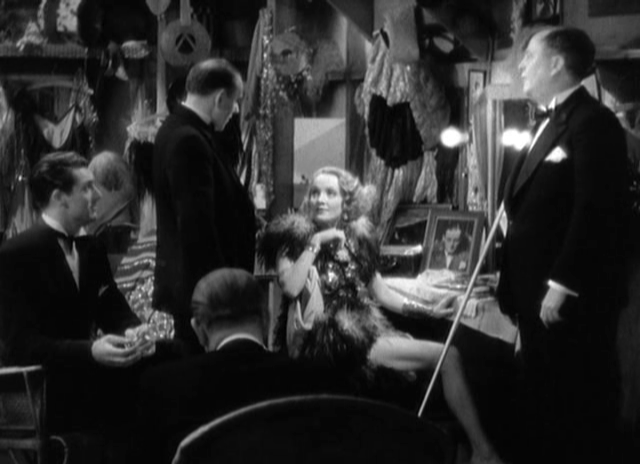
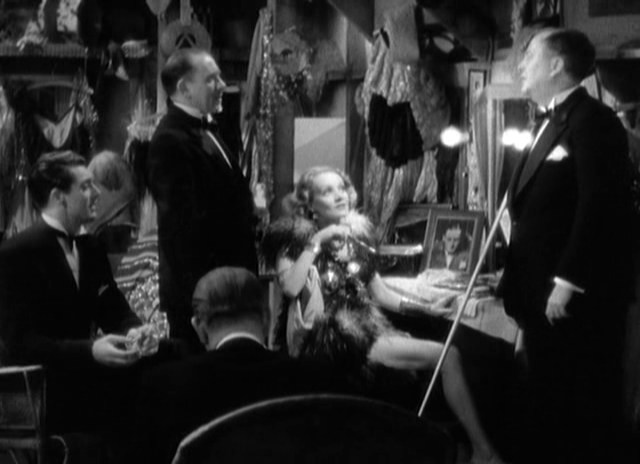
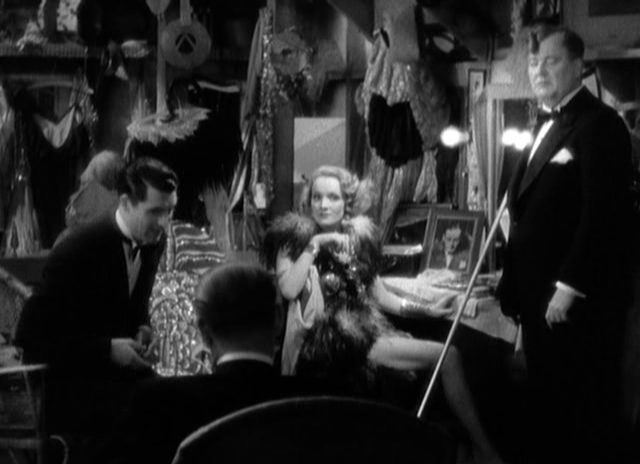
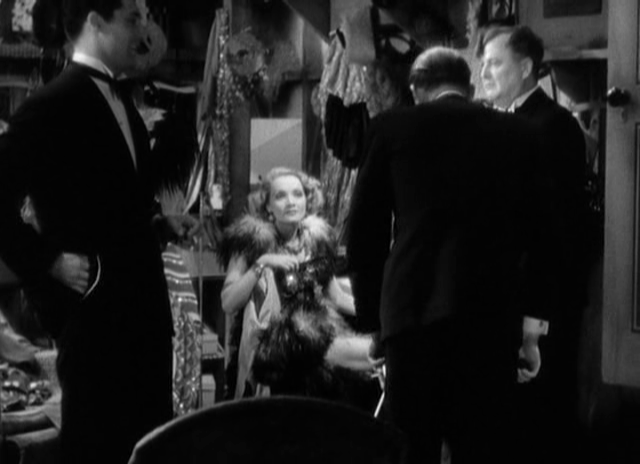
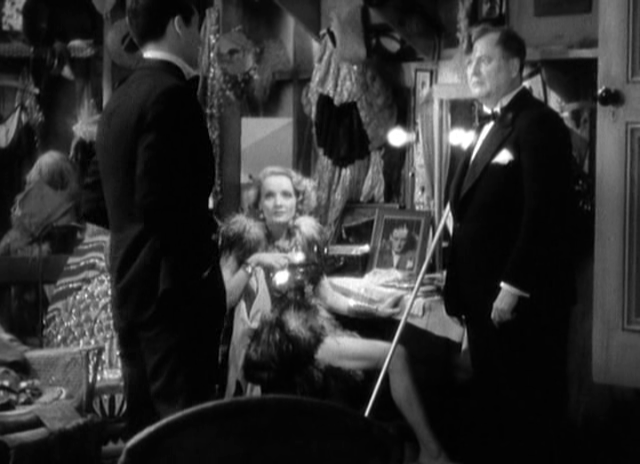
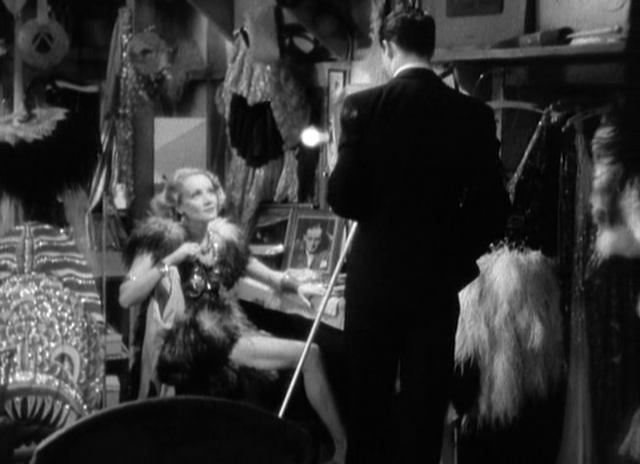
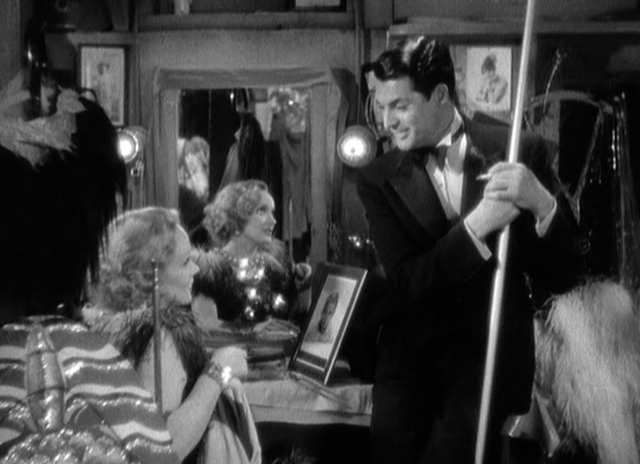 Von Sternberg creates a tragedy out of a single tableau shot and a series of exchanged glances. Dietrich’s leg creases and protrudes into center shot, appearing dominant, but only ever an appearance. Her glances follow the various men decide who will have her, a coded game of gentlemanly talk to decide the fate of a woman. The black suits move around as towering monoliths to Dietrich’s captured prey. This is libido as a hunting gamesmanship, perfectly acceptable but overall with tragic results.
Von Sternberg creates a tragedy out of a single tableau shot and a series of exchanged glances. Dietrich’s leg creases and protrudes into center shot, appearing dominant, but only ever an appearance. Her glances follow the various men decide who will have her, a coded game of gentlemanly talk to decide the fate of a woman. The black suits move around as towering monoliths to Dietrich’s captured prey. This is libido as a hunting gamesmanship, perfectly acceptable but overall with tragic results.
Blonde Venus (1932) by Josef von Sternberg
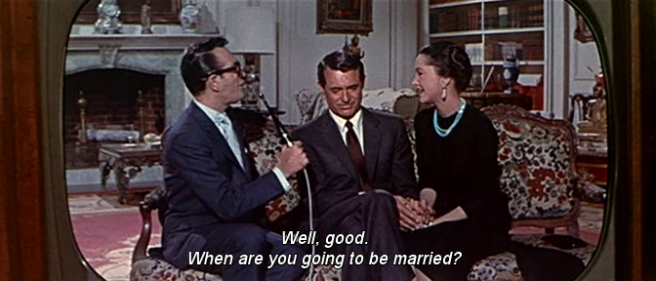
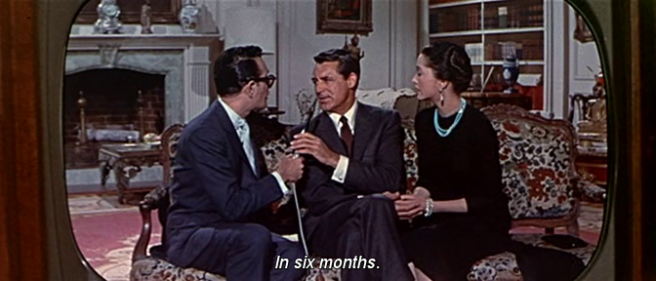
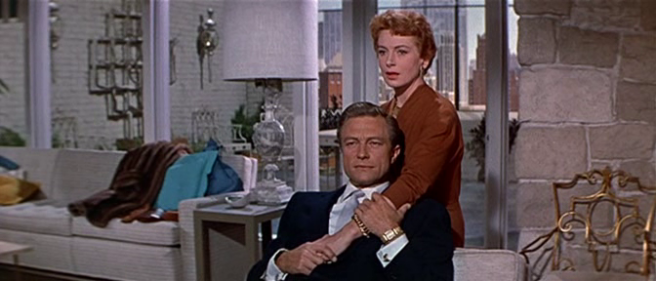
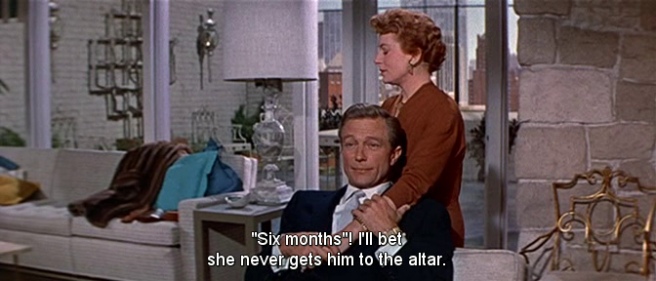
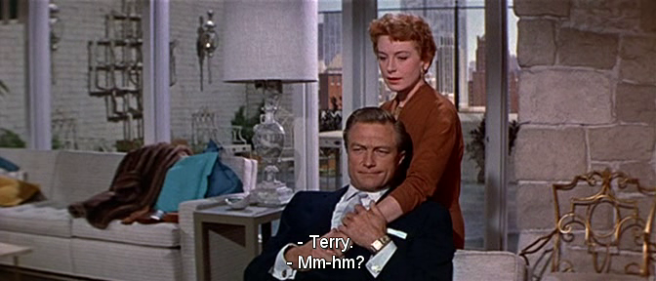
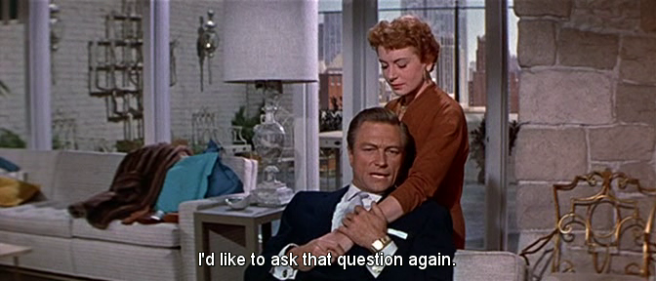
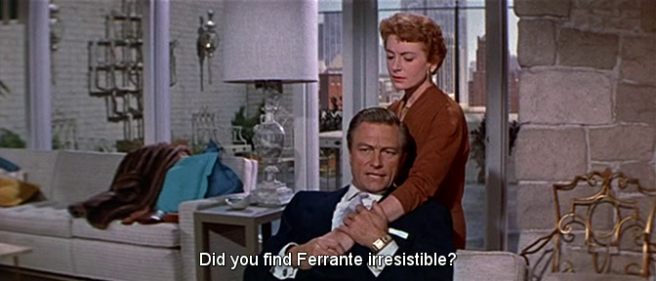
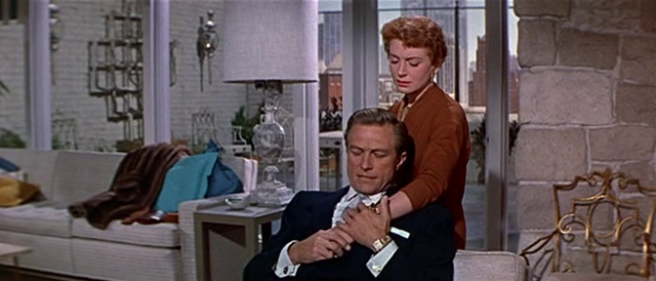
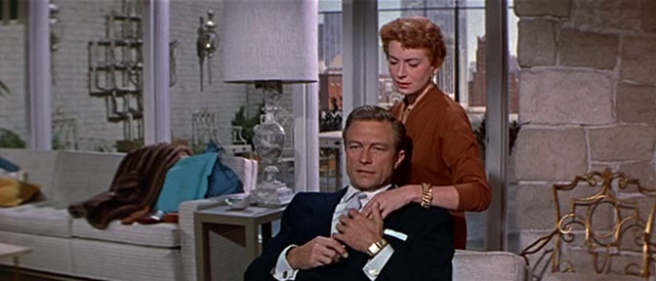
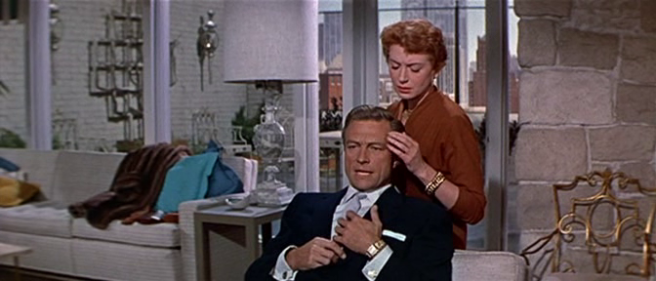
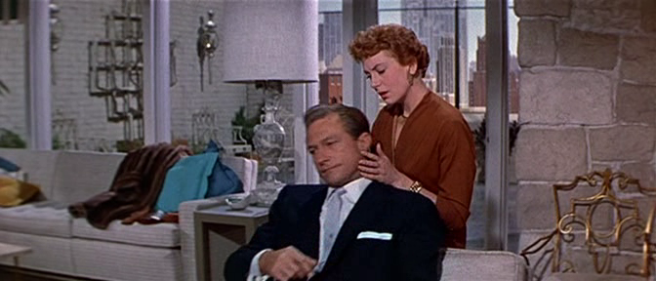
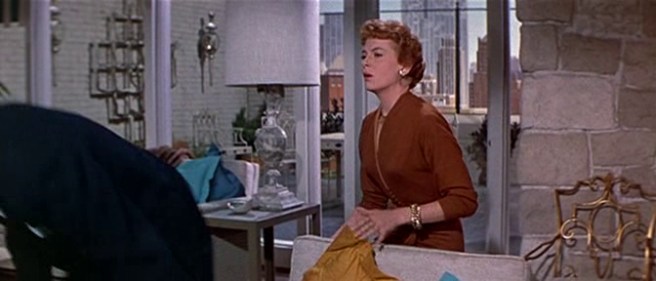
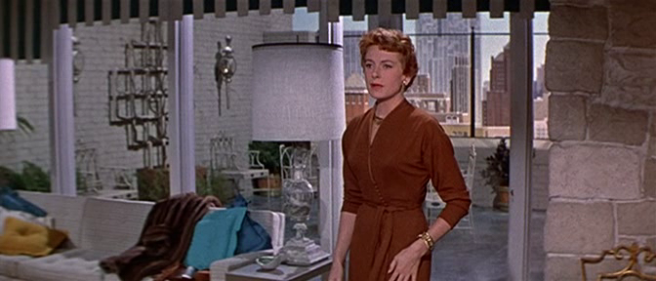 After a little after an hour in An Affair to Remember’s bipartite structure, McCarey retreads the entire emotional mine field of the first half. One could walk in to the film after an hour and not miss a beat in the second half. McCarey’s pathos is on full display at its finest. Every gesture in space (through McCarey’s remarkably precise compositions) is charged with the most fundamental emotions of the characters. We feel as though their actions are predestined and so we immediately understand the necessity of the second half.
After a little after an hour in An Affair to Remember’s bipartite structure, McCarey retreads the entire emotional mine field of the first half. One could walk in to the film after an hour and not miss a beat in the second half. McCarey’s pathos is on full display at its finest. Every gesture in space (through McCarey’s remarkably precise compositions) is charged with the most fundamental emotions of the characters. We feel as though their actions are predestined and so we immediately understand the necessity of the second half.
An Affair to Remember (1957) by Leo McCarey
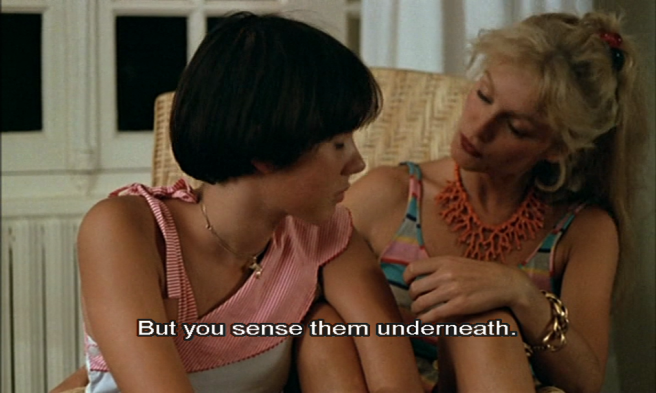
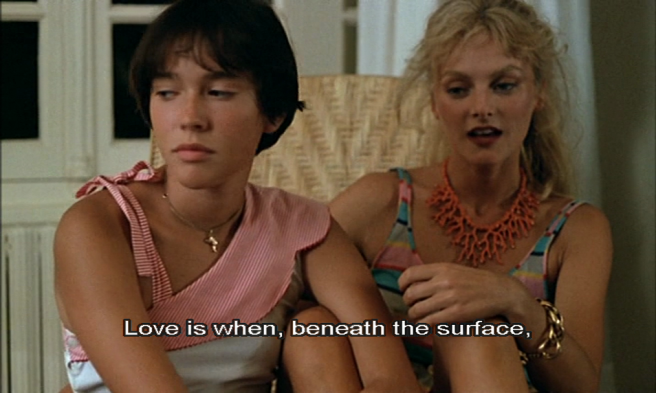
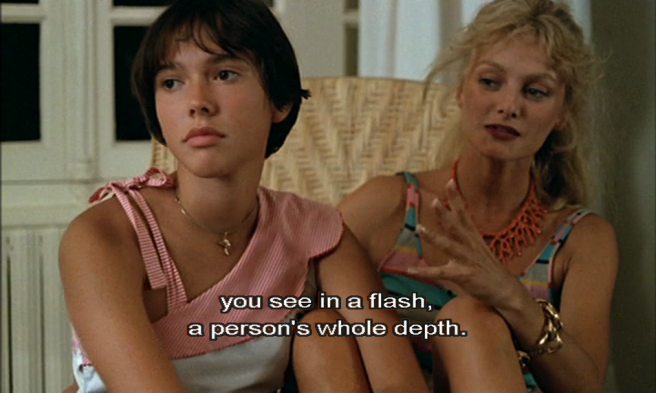 In dialogue about love, Rohmer also explains his philosophy on acting. In Rohmer, actions are not simple actions. Actions result directly from a character’s fundamental psychology. A slight turn of the head, a momentary pause in speech, the subtle use of one-shots all have the effect of externalizing the fundamentals of character. There’s no such thing as an inconsequential action in Rohmer, every action has deep personal implications. The unbelievable quality of film acting is that it enables such complex expressions of being to be expressed instantly, subtly and without breaking discourse.
In dialogue about love, Rohmer also explains his philosophy on acting. In Rohmer, actions are not simple actions. Actions result directly from a character’s fundamental psychology. A slight turn of the head, a momentary pause in speech, the subtle use of one-shots all have the effect of externalizing the fundamentals of character. There’s no such thing as an inconsequential action in Rohmer, every action has deep personal implications. The unbelievable quality of film acting is that it enables such complex expressions of being to be expressed instantly, subtly and without breaking discourse.
Pauline at the Beach (1983) by Eric Rohmer